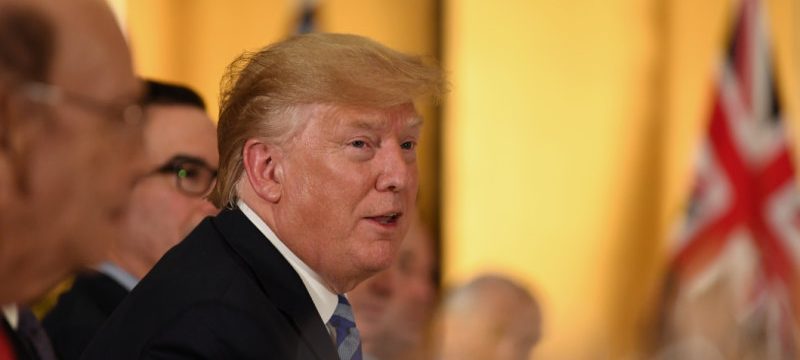New York: While some Republican politicians criticised US President Donald Trump's decision not to launch military strike against Iran last week, his restraint has been welcomed by a war-weary American public and key conservative media allies.
With Trump already intensely focused on his re-election prospects, the dovish mood of the American electorate is likely to provide a powerful counterbalance to the influence of hawks in his administration.
Secretary of State Mike Pompeo and National Security Adviser John Bolton both favour a tough approach to Iran.
Tucker Carlson, one of Fox’s most high-profile hosts, has applauded Donald Trump’s decision not to bomb IranCredit:AP
Some of the country's most influential commentators, whose views Trump monitors closely, also praised his decision not to launch strikes as the "high point of the Trump presidency".
A poll by Morning Consult released this week showed overwhelming support for Trump’s decision to abort a planned strike against Iranian facilities following the shooting down of the unmanned drone in the Strait of Hormuz.
Trump said that the estimated 150 casualties would be too many to justify the attack.
The poll showed that 65 per cent of registered voters supported calling off the strike, with just 14 per cent opposing Trump's decision.
US President Donald Trump in Osaka on Thursday.Credit:AAP
In a dramatic break with the clear-cut partisan divide that dominates US public opinion today, support for cancelling the strike transcended party lines.
"As tensions continue to escalate, voters across the political spectrum back President Trump's decision to abort a strike in Iran," Tyler Sinclair, Morning Consult's vice president, said.
The poll found that 62 per cent of Democrats, 76 per cent of Republicans and 58 per cent of independents supported Trump’s decision to back off from military action.
A separate poll by HarrisX found that just 24 per cent of voters favoured military action against Iran while 49 per cent wanted to see a negotiated solution to the recent tensions.
A Khordad air defence system is displayed while Supreme Leader Ayatollah Ali Khamenei visits an exhibition of achievements of Revolutionary Guard’s aerospace division, in Iran.Credit:AP/File
The polls show that, 15 years on from the start of the Iraq War, the American public remains opposed to the US becoming bogged down in another war in the Middle East.
It also shows they do not share the views of hardline Republicans in Congress who attacked Trump for cancelling the strike.
“The failure to respond to this kind of direct provocation that we’ve seen now from the Iranians, in particular over the last several weeks, could in fact be a very serious mistake,” Wyoming congresswoman Liz Cheney said last week.
Other Republicans compared Trump's foreign policy to that of his Democratic predecessor Barack Obama – an insult carefully chosen to raise his ire.
While he is reluctant to engage in military action, Trump loathes looking weak.
This week he breezily told an interviewer that a war with Iran "wouldn't last very long" and on Twitter threatened the country with "obliteration".
The most prominent voices in the US conservative media were previously hawkish neo-conservatives, but that has changed in the Trump era.
Prime-time Fox News host Tucker Carlson said that pulling out of the strike was a "high point in the Trump presidency" and that "bombing Iran would have ended his political career in a minute".
"There'd be no chance of reelection after that," Carlson said.
"Ill-advised wars are like doing cocaine: the initial rush rises your poll numbers, but the crash is inevitable. And in this case, it would be horrible."
Fox host Laura Ingraham, who regularly scores interviews with Trump, also applauded his restraint.
"Prudent realism, that was the hallmark, was going to be of his foreign policy and he lived up to it," she told her viewers.
"He was elected, in part, to remove the US from these foreign entanglements and end our perpetual military interventionism."
Spheres of influence
Source: Read Full Article



